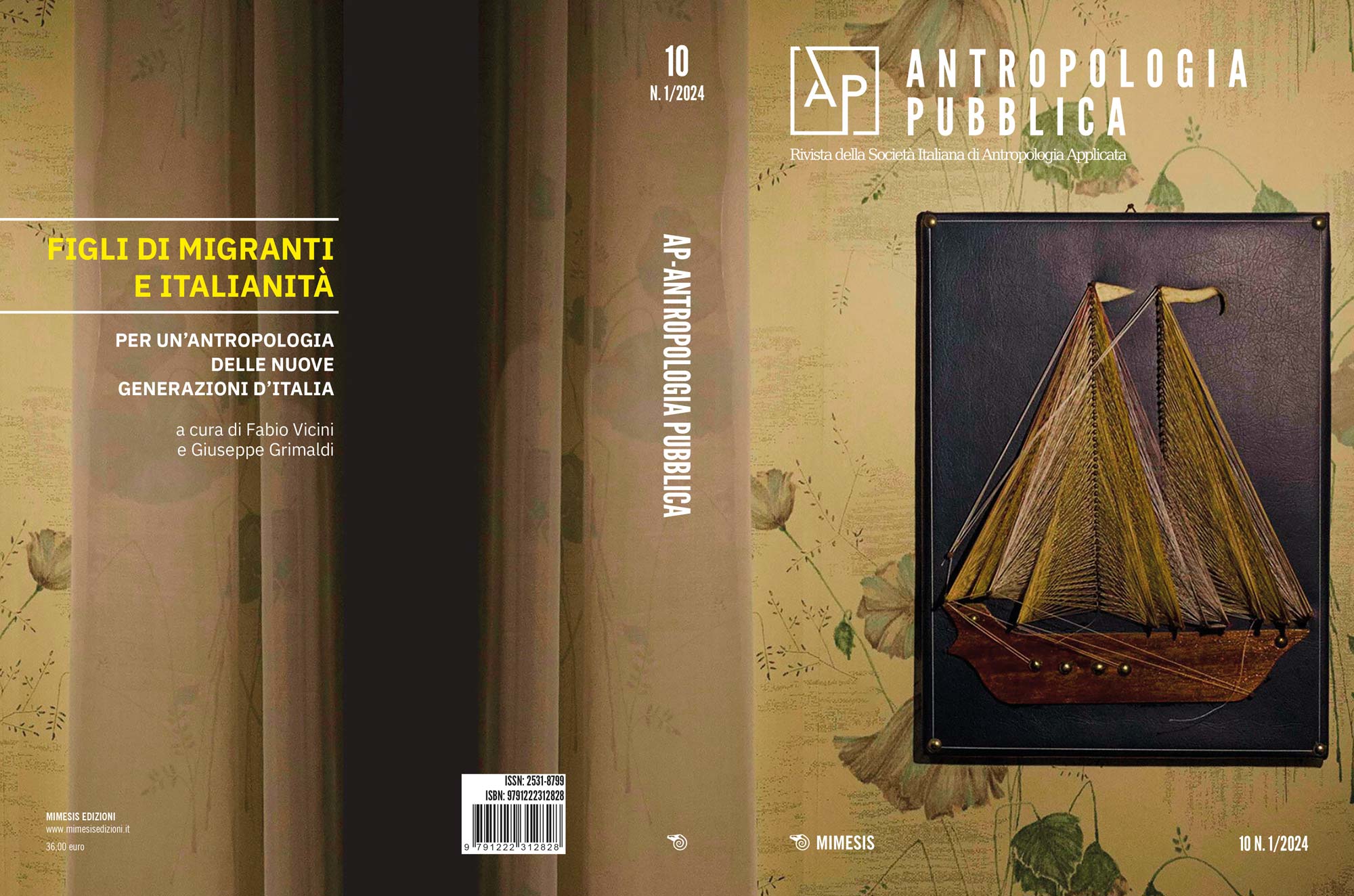Sentirsi a casa fra Tunisia e Italia. Un confronto fra generazioni di origine tunisina sul concetto di casa
DOI:
https://doi.org/10.7413/2531-8799006Parole chiave:
Home; Italianness; Tunisia; IntergenerationalAbstract
Both social and legal recognition of the children of migrants within the Italian national system continues to find strong resistance, which is due, among many reasons, to an essentialized idea of culture. This is conceived as a quality intrinsic to individuals, transmissible invariably and independently of the context in which one lives. Through this article, we will see how these conceptions related to belonging and citizenship can represent divergences between different generations of the same family group. This is what emerged from a field research and semi-structured interviews conducted in 2021 and 2022 between Béja (Tunisia) and the province of Ancona. A survey that, using the “remittance houses” as a pretext, investigated the conceptions and feelings of home of some Tunisian migrants and their children who grew up in Italy, among whom the undersigned is included. In particular, the perspective of the latter showed generational differences in the way they relate to identity, especially to Italianness. A construct that causes young people to be considered as essentially “other” from the rest of their peers. Although this entails a strong influence on identity elaboration processes, we will see how this construct is played out through intragenerational networks and forms of mobility that produce new transnational identity constructions, related both to the ancestral context of origin and to macro-regional or globalized forms of belonging.



